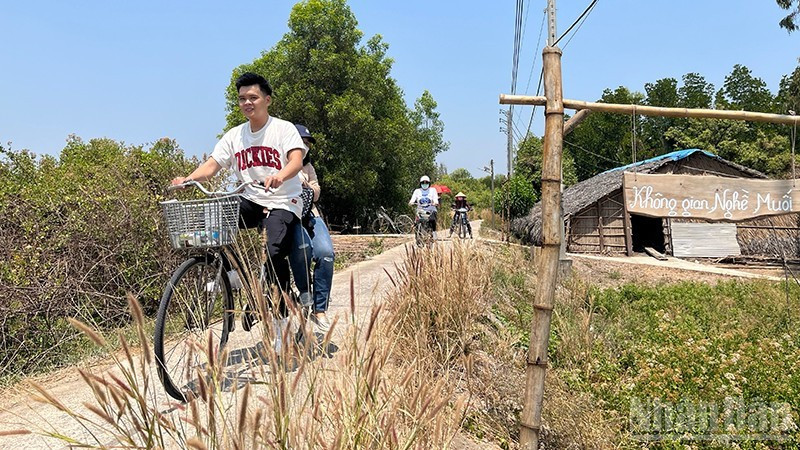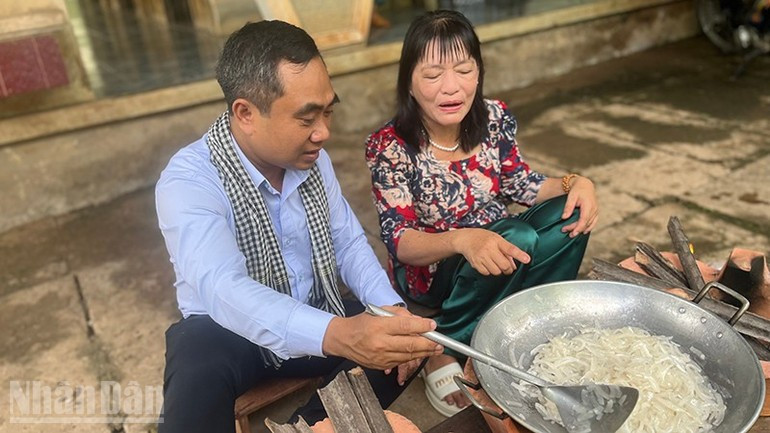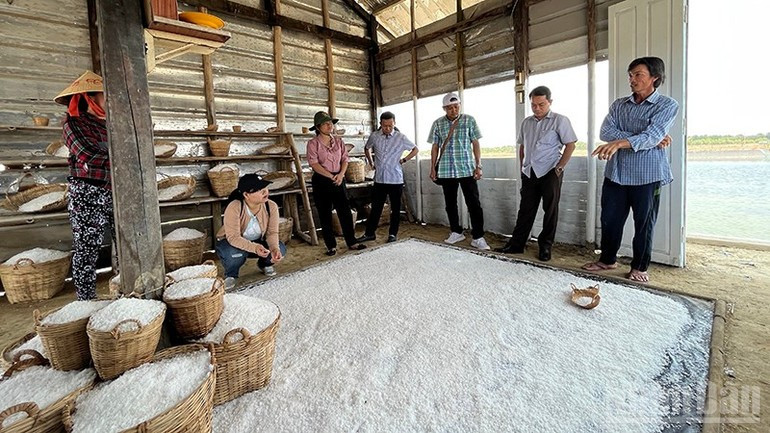Rural tourism creates momentum for sustainable agricultural development
Rural tourism not only fosters sustainable agricultural development but also contributes to building civilised and modern new-style rural areas. The development of rural tourism in association with “ecological civilisation” is a strategic direction that many localities are pursuing, with the aim of reducing emissions, enhancing product value, and fostering community development.

Recently, at a national forum titled “Rural Tourism Associated with Ecological Civilisation and Creating a Green Living Environment” — jointly organised by the Agricultural Trade Promotion Centre, the University of Social Sciences and Humanities (Viet Nam National University - Ho Chi Minh City), and other units — managers, researchers, and travel agencies exchanged experiences to promote rural tourism in a “green–smart–circular–low carbon” direction.
Agriculture is not only an economic sector but also a cultural space and a traditional livelihood for Vietnamese people. Rice fields, craft villages, orchards, and paddy fields all embody indigenous knowledge, farming experience, and stories about the relationship between humans and nature. Transforming such indigenous knowledge into distinctive and engaging narratives is one of the key attractions for tourists.
For this reason, in recent years, the trends of sustainable tourism and environmentally responsible travel have gained increasing attention.
Tourists today do not simply seek sightseeing and relaxation, they look for experiences that help them understand the origins of food, living environments, and the stories of local communities. This creates a significant opportunity for green agricultural tourism — a form of tourism based on sustainable agricultural production, respect for ecosystems, and appreciation of labour values.
In Ho Chi Minh City, in addition to heritage discovery tours in the city centre, many travel companies have developed tours that explore the daily life of farmers in suburban districts such as Hoc Mon, Cu Chi, Binh Chanh, Can Gio, Thieng Lieng, and Nha Be.
Here, in addition to enjoying fresh air and rustic dishes, visitors can experience traditional crafts such as palm-leaf conical hat weaving, incense making, and salt production — activities that have proven particularly popular among international visitors to the city.

According to Dr Le Hoang Dung, Vice Rector of the University of Social Sciences and Humanities (Viet Nam National University – Ho Chi Minh City), in the context of globalisation and modernisation, tourism, agriculture, and rural areas are increasingly affirming their importance and have become a direction for sustainable development within Viet Nam’s tourism industry.
“For this reason, the development of rural tourism contributes to raising incomes, promoting the agricultural economy and helping preserve cultural identities, while enhancing natural resources and indigenous knowledge. These are invaluable ‘green assets’ of rural Viet Nam,” Dr Le Hoang Dung emphasised.
According to Tran Quang Duy of Penguin Travel, Ho Chi Minh City, building green agricultural tourism products is not only about exploiting landscapes but also about introducing an entire value system.
“As a travel enterprise, I find that agricultural tourism products only become truly competitive when they are designed as meaningful experiences with the participation of local communities, and capable of creating emotional connections between tourists and the land they visit,” Tran Quang Duy shared.

Tran Quang Duy added that the company develops green agricultural tourism products are not merely for “visiting and viewing”, but for experiencing, interacting, learning, and transforming perceptions. Through this, visitors can better understand the value of clean agriculture, appreciate the efforts of farmers, and become more aware of the role each individual plays in protecting the environment.
According to Associate Professor Dr Ngo Thi Thu Trang, Head of the Faculty of Geography, University of Social Sciences and Humanities (Viet Nam National University – Ho Chi Minh City), to develop agricultural and rural tourism in association with ecological civilisation and a green living environment, attention should be given to key pillars: developing a multi-value agricultural economy; completing One Commune, One Product (OCOP) criteria for agricultural–rural tourism; developing green mindsets and standards; preserving local architecture and identity; ensuring communities are the creative agents; attracting young human resources; positioning tourism as an ambassador for agricultural products; strengthening the application of science–technology and digital transformation; and promoting regional linkages and public–private partnerships.
Associate Professor Dr Pham Trung Luong, member of the National Planning Advisory Expert Group, said that Viet Nam needs to innovate its approach to rural planning, especially in regions where tourism potential is linked to indigenous cultural values. He emphasised that the establishment of tourism product and service standards that enhance authentic experiences of people and nature must be carried out soon, along with improving destination management capacity and upgrading rural infrastructure to meet development needs and adapt to climate change.
Nguyen Minh Tien, Director of the Agricultural Trade Promotion Centre, stated that in the context of a global shift towards green growth and Net Zero commitment by 2050, rural tourism is not only a driving force for sustainable agricultural development but also a foundation for creating a green living environment for communities.
“We believe that with strong cooperation among stakeholders, many attractive rural tourism products will be developed, helping to improve local incomes and create a future harmonising economy and ecology towards sustainable prosperity,” Nguyen Minh Tien added.








